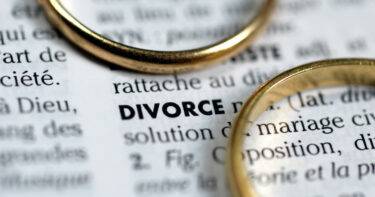
24
Jan 2025
Pension Division in Divorce: A Complete Guide for English and Welsh Divorces
When couples divorce in England and Wales, pensions often represent one of their most valuable assets, sometimes worth even more than the family home. The courts have developed sophisticated approaches to dealing with these complex assets during financial settlements. Here’s a comprehensive look at how the system works.
The Legal Framework
The courts in England and Wales have broad powers to deal with pensions under the Matrimonial Causes Act 1973. These powers were significantly enhanced by the Welfare Reform and Pensions Act 1999, which introduced pension sharing orders as an additional tool for achieving fair financial settlements.
Types of Pension Orders
1. Pension Sharing Orders
The most common approach is the pension sharing order, where a percentage of one spouse’s pension is transferred to the other spouse. This creates a clean break, as the recipient gets their own separate pension pot. The transferred portion becomes entirely independent of the original pension holder.
The recipient can either:
- Transfer their share into a new pension scheme
- Join their ex-spouse’s scheme as a pension credit member (if the scheme allows this)
2. Pension Offsetting
Sometimes, the court might choose pension offsetting. Here, one spouse keeps their pension intact while the other receives a larger share of other assets (like the family home) to compensate. While simpler to implement, this approach can be challenging when trying to compare the true value of different types of assets.
3. Pension Attachment Orders
Previously known as pension earmarking, these orders direct a portion of pension benefits to the ex-spouse when they come into payment. These are less common now because:
- They don’t create a clean break
- The recipient loses their benefits if the pension holder dies
- The recipient can’t access their share until the pension holder retires
How Courts Value Pensions
The courts typically require expert actuarial input to value pensions fairly. This is because:
- Different types of pensions (defined benefit vs defined contribution) need different valuation approaches
- The cash equivalent transfer value (CETV) may not reflect the true value of benefits
- Additional benefits like guaranteed annuity rates need consideration
- Public sector pensions often have special features requiring expert analysis
Factors Courts Consider
When deciding how to divide pensions, courts consider several factors:
- Length of marriage and period of pension accumulation
- Age of both parties
- Health and life expectancy
- Other financial resources available
- Earning capacity of each party
- Whether the pension was acquired before the marriage
Special Considerations
Armed Forces Pensions
Military pensions have unique features and often require specialist advice. The courts have developed specific approaches for these cases, recognising their particular characteristics.
International Elements
If either party has pension rights in other countries, this can complicate matters significantly. The courts must consider whether they have jurisdiction over foreign pensions and how to achieve fairness if they don’t.
Recent Developments
The courts have recently shown increased sophistication in handling pensions, particularly in cases involving:
- Multiple pensions with different characteristics
- Complex defined benefit schemes
- Pensions already in payment
- The treatment of Additional State Pension rights
Practical Implications
Getting pension sharing right requires:
- Early identification of all pension assets
- Proper valuation by qualified actuaries
- Understanding of scheme rules and restrictions
- Consideration of tax implications
- Careful drafting of orders
Conclusion
The treatment of pensions in English and Welsh divorces has evolved into a sophisticated system that aims to achieve fairness while recognising the complexity of these assets. Success requires careful analysis, often with expert input, to ensure both parties’ retirement needs are properly addressed. As pension legislation continues to evolve, so too will the courts’ approach to dealing with these valuable assets in divorce proceedings.
The most important thing for divorcing couples to remember is that pensions cannot be ignored – they often represent one of the most valuable assets in a marriage and require careful consideration to ensure a fair division that provides for both parties’ retirement needs.
If you have any further questions about pension division in divorce, the Chadwick Lawrence family law team can help. Get in touch today.
- Like this ? Share with friends





